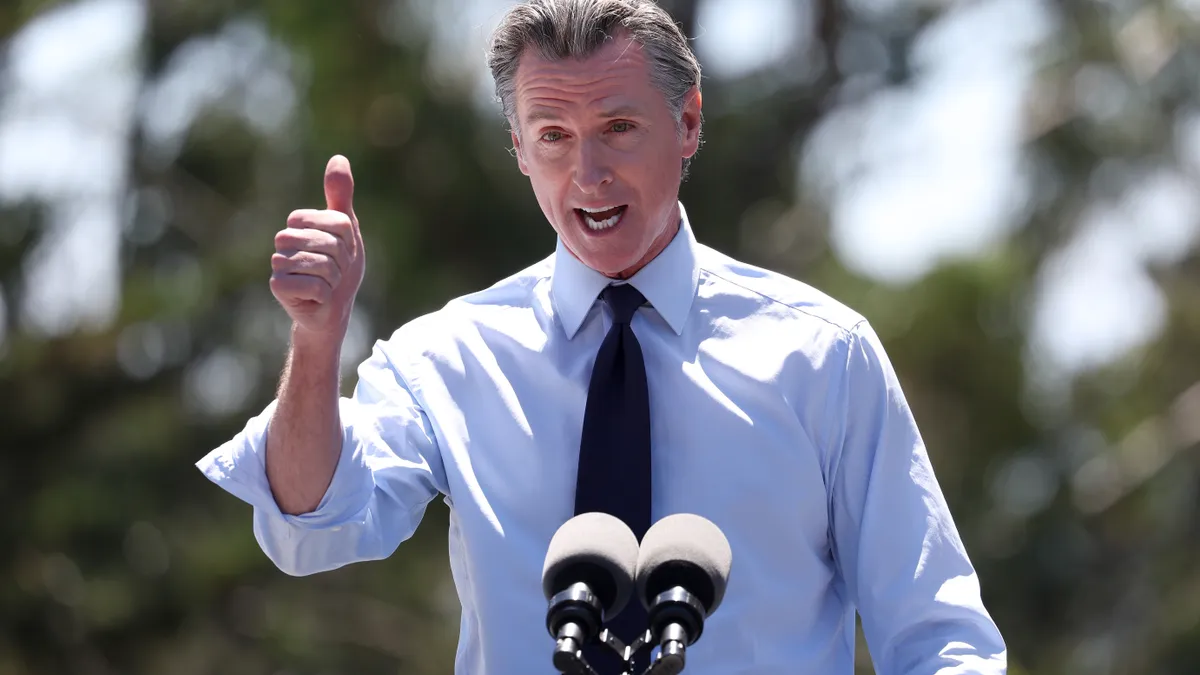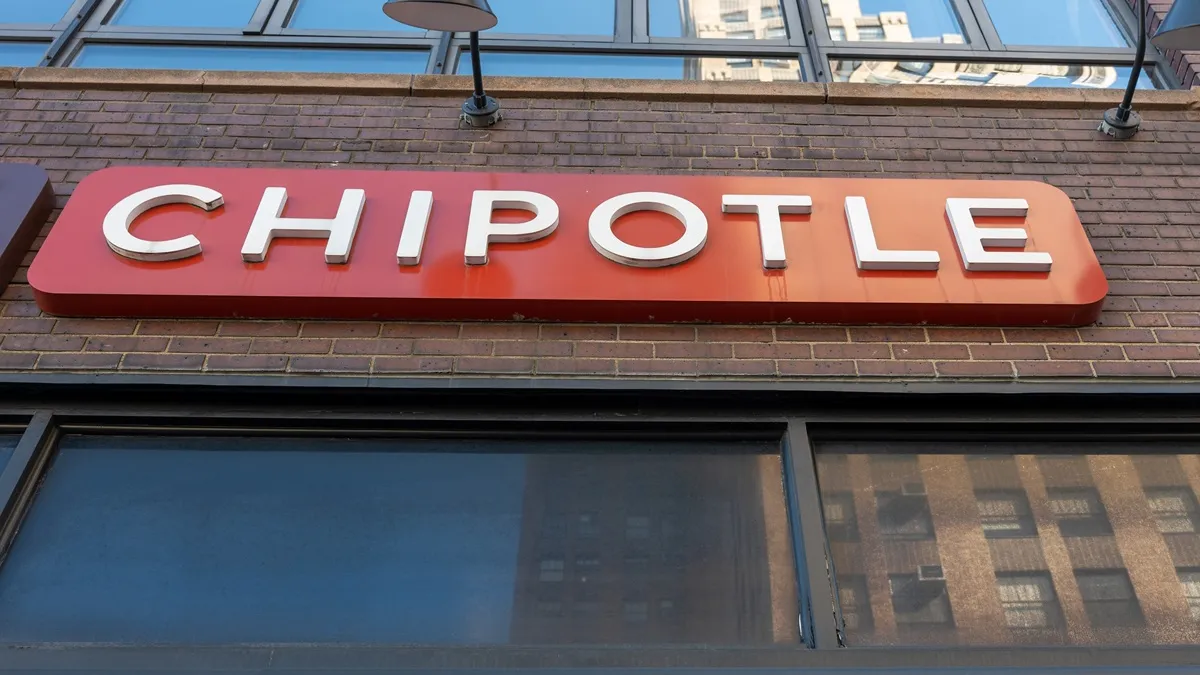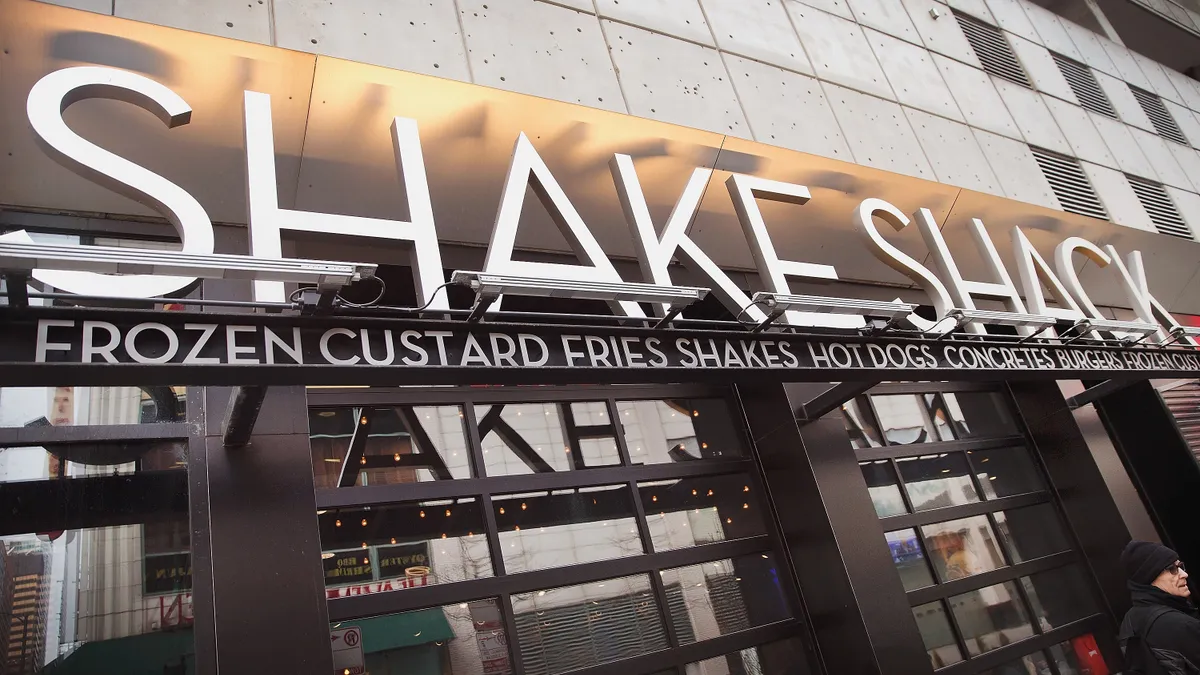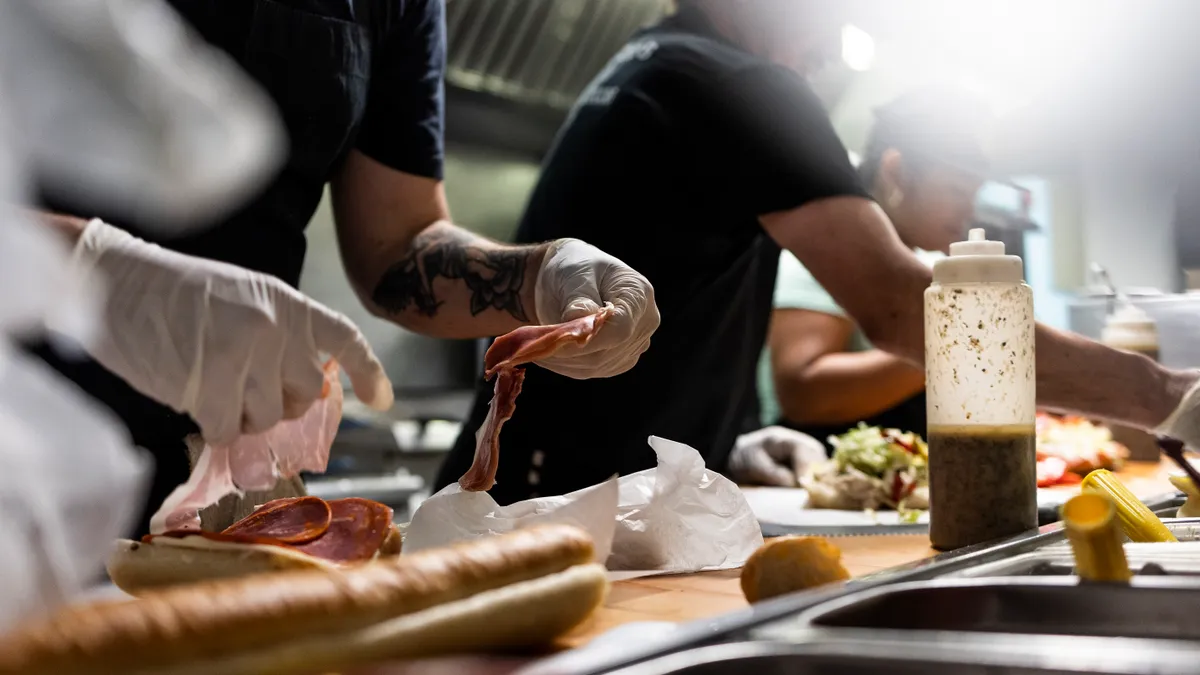California Gov. Gavin Newsom signed AB 257 Monday, establishing a council of worker, industry and state representatives to set wages and conditions for the state’s fast food sector. The bill was backed by the Service Employees International Union (SEIU), which was an integral part of Newsom’s campaign to defeat a recall election last year. AB 257 faced widespread opposition from industry groups, including the National Restaurant Association.
Sean Kennedy, NRA’s vice president for public affairs, indicated the governor’s signature has not ended the political fight over the bill.
“The National Restaurant Association will review every remedy available in the state on behalf of the 100,000 restaurants proud to welcome Californians to their tables,” Kennedy said in a statement emailed to Restaurant Dive Monday.
A previous sweeping change to California’s labor law, AB 5, was signed by Newsom but defeated in a referendum organized by rideshare and food delivery services. Nearly three years after its passage, which would have required employers to reclassify gig workers as employees, AB 5’s status is still contested.
AB 257 passed the California State Senate by the barest possible majority, and only after a series of amendments weakened it, raising questions about the council’s longevity and rulemaking power.
The 10-member fast food council will be restricted from issuing rules until 10,000 California fast food workers sign a petition approving its existence. But the most significant restraint on the council is its limited existence. By 2029, the state legislature would have to pass a law extending the lifespan of the council.
Restaurants fear inflation
With its future far from certain, AB 257 has already attracted criticism from the restaurant industry and praise from organized labor.
Joe Erlinger, McDonald’s USA president, called the bill a mistake Wednesday in a letter shared on the company’s website. Erlinger said the bill was “lopsided, hypocritical and ill-considered,” because it targeted one segment of the state’s economy for wage increases. Such an approach, Erlinger argued, was tantamount to the government picking winners and losers.
Erlinger’s comments on AB 257 align with wider industry sentiment. Michelle Korsmo, the president and CEO of the NRA, said in a statement last month that the bill would drive up costs and endanger profits at franchises and brands pinched by inflation.
“The FAST Act threatens businesses already contending with a 16% increase in wholesale food prices and ongoing supply chain challenges,” Korsmo said. “[Forty-five percent] of California’s restaurant operators report that their business conditions are worse today than they were three months ago.”
The International Franchise Association called on Newsom to veto the bill. A key member of Stop AB 257, the coalition of industry groups formed to oppose the legislation, the IFA called the law a discriminatory policy that sets arbitrary standards for one group of workers.
Franchisees with lower unit volumes would be hurt by the bill’s provisions raising wages in the fast food sector, Leena Mann, a franchisee operating two Subways and a Del Taco, said.
“The minimum wage should be set by California as a standard because there's a lot of other people working in many other industries that are in the same boat as the people fighting for $15,” Mann said. Housing costs and other major factors in California’s cost of living, Mann said, would not be addressed by sectoral bargaining or wage increases in one industry. In other words, AB 257 is not a cure-all for the problems facing low-wage workers in the state, according to Mann.
Mann said it would be difficult for franchisee representatives to negotiate as part of the proposed fast food council because workers and franchisees often have divergent interests.
“Everyone at that table is not investing in my business, they don't have their house on the line or credit cards on the line,” Mann said. “We're going to be put in a pinch at this table.”
Jesse Lara, an area manager at Peglion LLC, an El Pollo Loco franchise company co-owned by his father, said he was afraid the bill would push up operating costs for franchisees and ultimately erode traffic by forcing menu prices higher. Significant price increases, Lara said, could weaken consumer demand. Inflationary pressure has already forced some consumers to cut back spending or switch to more value-focused options.
Sustained price increases, Mann said, could call into question the very purpose of fast food as an industry, and might push chains to embrace automation as a way to trim labor costs.
“We as franchisees offer value-type foods. It's not a value if a Big Mac now costs $12,” Mann said. “We're gonna lose customers.”
Labor sees a revival of political fortunes
For SEIU, AB 257 is a major victory. The union, one of the largest private-sector labor organizations in the United States, has run a decade-long series of corporate campaigns in the fast food sector to pressure employers to raise wages. Fight for $15 is the most famous of these campaigns, but SEIU Local 32BJ is responsible for a multi-year pressure campaign against Chipotle in New York City, which recently resulted in a major Fair Work Week settlement in that city. Workers aligned with SEIU affiliate Workers United have been organizing across Starbucks stores for the past year.
SEIU International President Mary Kay Henry pointed to the bill as an inflection point in the political fortunes of organized labor, and as something of a return to sectoral bargaining.
“AB 257 is one of the most important pieces of labor law to pass in generations,” Henry said at a press conference celebrating the passage of AB 257. “Much like the big steel and auto companies did in the early 20th century, today's corporate giants like Starbucks, McDonald's, Wendy's, Burger King, Amazon and Delta Airlines can come to a national bargaining table and hear their workers’ demands.”
Angelica Hernandez, a worker at McDonald’s, said at the press conference that working conditions in fast food restaurants were degrading, and that she had faced sexual harassment on the job. Hernandez spoke in Spanish, with a translator interpreting her words in English.
“We're at the mercy of our employer, facing violence from angry customers, and other dangers,” Hernandez said. “In fact, my son said he wants to work at McDonald's like me one day. And I said ‘No. I don't want you to have to be humiliated at work and treated as I have been treated for so long.’”
Workers were particularly excited by a provision that gives the council the ability to raise the minimum wage in the industry to $22 an hour and tie wage growth to inflation. Sandro Flores, who works at a Carl’s Jr. restaurant, said inflation has already eaten up gains in wages, and pay raises needed to be consistent with inflation.
“Hopefully with AB 257, we will get the constant revision to ensure that the minimum wage is a livable wage, because we thought $15 was gonna be enough, and it wasn't enough,” Flores said at the SEIU press conference.






















